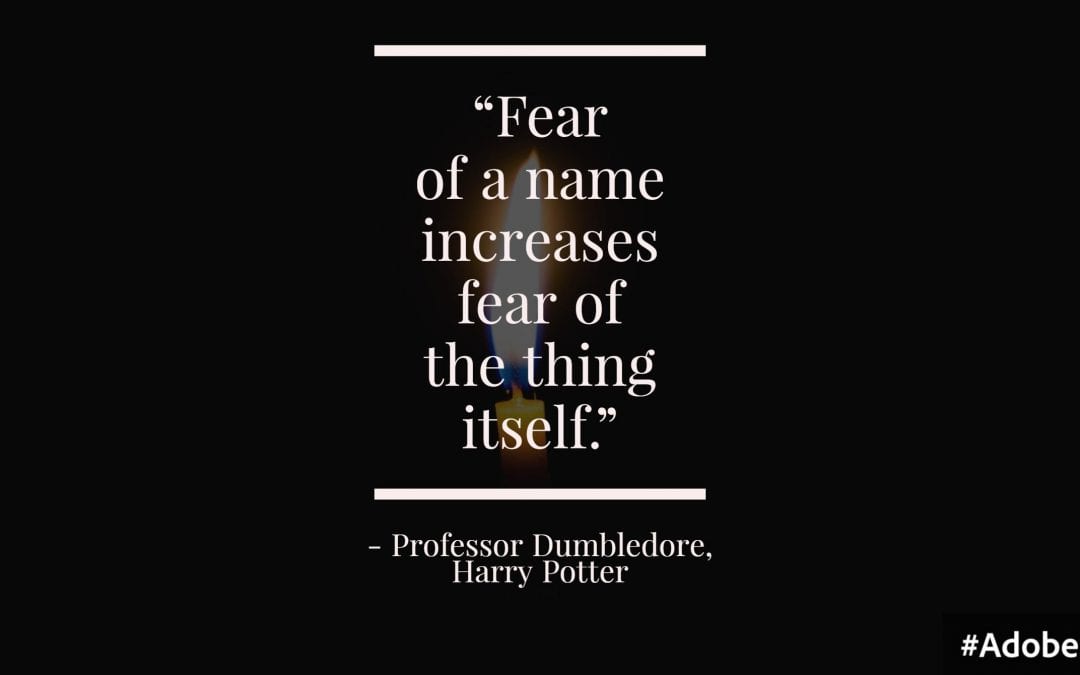After 11 years of suffering quietly, I resolved to speak out about something most of us decide is a secret to take to their early graves. For years, decades, lifetimes of silence makes the thing nonexistent to the world. The only reason for this silence is the fear of judgment from loved ones, friends, relatives people who matter, and also, people who dont.
But Professor Dumbledore is right, as always: Fear of a name increases fear of the thing itself.
I was diagnosed with clinical depression when I was 20 (along with severe PTSD) after my mothers untimely death. For the last 11 years, Ive lived in fear of judgment from people who wouldnt know what this means. Of course, it is too much to ask for anyone to understand what a disease is like when its invisible to the naked eye, especially in India … No blood tests, no x-rays, no MRI to show a disease that is slowly eroding my very existence.
It took me a long time to understand my own disease. And by the time I did, the first signs of Bipolar Affective Disorder (BPAD) showed up. I was 25. It took me much longer to attend therapy, and it was even harder to attend therapy regularly and to follow medications that will help me live a normal life. But for people with mental illnesses, normal is a myth. My disease makes it hard for me to like people, trust people, be what is considered “normal.”
I was doing all of this alone with the weight of my disease in my head. Of course, my father was there; my brother was there. But to expect anyone to understand what clinical depression, anxiety, BPAD and PTSD are doing to you is too much to ask for. I had support, but I was suffering alone. In India, mental illness is not taken seriously. Nobody talks about it, no one thinks its a real thing.
You need to get out of the house, go on a run, do something you love. Oh, I know how you feel. I was depressed yesterday. You dont look depressed! Some people have it worse than you. Youre being selfish. What do you have to be depressed about? And finally, Depression isnt real, its all in your head. Stop feeling sorry for yourself. Snap out of it. These are just a few things I heard over the years. The only logical thing was to lock myself away in a close, dark room with this insidious monster in my head. That is, until I met my husband, Chirag. I found support, trust and complete acceptance.
It is true, people have it worse than me. It is true that I should do what I love. It is true that I dont look depressed. People can overcome and survive anything as long as its in sight.
No, my mental illness isnt made up in my mind. No, this is not a lifestyle choice I made.
For every person suffering from mental illness, it is caused by chemical imbalance in the brain, mostly hereditary factors, environmental causes, emotional trauma and a lot of other very real reasons. Mental illnesses should be treated the way we treat every other illness that affects the human body. Just because you cant see it doesnt mean its not there.
It took me a lot of time and effort to see a doctor. It took me a lot more to start treatment. But because it is so hard to accept me with my bipolar disorder, I feel blessed for the people around me who accepted me for who I am.
I am not my disease. I have a husband who loves me, a brother who is my rock, a friend who understands me and a loving family who never gave up on me. I have a beautiful life that was once just a dream. I know I will be okay with the right treatment. I know I will be saved from unsavory thoughts of self-harm, I know theres help if I cant breath. I know I will survive.
I finally realised that its okay to ask for help. Everyone needs help. There is no shame in having a mental disease. There is no shame in talking about it. And to each and every person who is taking their time to read this note, it is for You So you can understand what mental illness is, so you can go out and seek help if you are suffering, and even if you are a bystander and find it hard to understand, just be there. Help a friend, a family member, a stranger. But mostly, help yourself.
And trust that there will always be someone to fix you if you let them.
This is my little step towards eradicating the stigma surrounding mental illness. Start a conversation. This is reality for hundreds around us.
Read more of Tannika’s writing at her Hope is Good page, and read her other posts for IBPF here.
The content of the International Bipolar Foundation blogs is for informational purposes only. The content is not intended to be a substitute for professional medical advice, diagnosis, or treatment. Always seek the advice of your physician and never disregard professional medical advice because of something you have read in any IBPF content.


